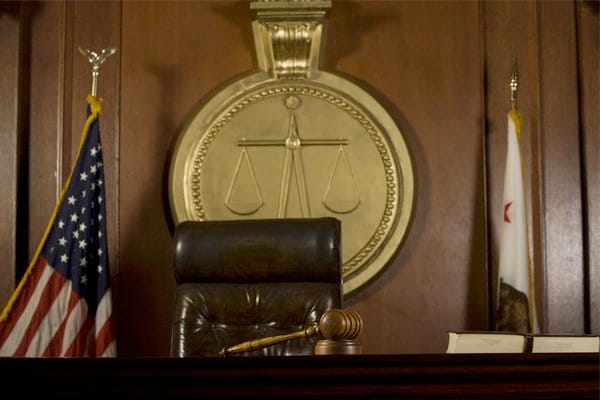"Wobbler" Bill on Drug Possession May Help Governor's Prison Plan


bikeriderlondon / Shutterstock.com
A federal deadline to realign prison numbers with design capacity is fast approaching. California is 9,600 inmates over capacity and the feds aren't budging on requesting early releases, a politically toxic solution that could boost crime rates.
With just a few months to avoid fines, Governor Brown hammered out an eleventh-hour plan. Alarmed lawmakers advocating for sustainable corrections compromised by requesting to extend the deadline on rehabilitative conditions. However, as the judges remain silent, construction looks more likely by the day.
State Senator Mark Leno was among those advocates. His bill, SB 649, is sponsored by the ACLU, the public defender's union, and Human Rights Watch. Under debate since February, it's proving increasingly relevant to the current situation.
The bill allows possession of any controlled substance in California to be a wobbler; that's a charge that can either be a felony or a misdemeanor, depending on the context and severity of the offense, at the discretion of a prosecutor and judge.
Although controversial, Leno cautioned the Assembly in June that it's "more moderate" than the thirteen states currently charging possession uniformly as a misdemeanor. Leno attempts to spare the exploited while punishing the exploiters, maintaining felony charges for anything relating to sale and distribution -- punishable by up to 3 years in lock-up. Relevant case deciders are given the power to make that distinction.
Ex-felons, especially those battling addiction, are uniquely ill-equipped to self-rehabilitate. Formal employment is difficult to keep or find. Subsidized housing and student loans are unavailable for life. Without affordable future-building options, ex-felons can't work on their mentality or employability, many returning to their criminal career.
Those re-entry barriers become mountains, pushing salvageable lives further into an exploitable underclass and crisis.
Existent rehabilitation programs and community nonprofits chip away at recidivism by correcting what "corrections" alone didn't and some inmates need incarceration to take it seriously. However, when addiction robs one of willpower, more treatment and less lock-up may be needed to break the cycle. The purpose of Leno's bill is granting the discretion to separate the needs of the willful criminals from those of the unwilling addicts.
Opponents of the bill are primarily the state's police chief's and district attorney's associations, whose lobbies argue that letting possession "wobble" will allow judges to veto prosecutorial charges, overwhelm overcrowded county jails, and remove the punitive incentive for following through with addiction treatment.
"Minimizing the consequences of addictive and destructive behavior does not make it less addictive or destructive," argued the D.A.'s lobby to the Senate earlier this month.
Leno responded with an LAO estimate of $160 million in incarceration savings to be rerouted toward monitoring programs incentivizing treatment not with threat of incarceration, but with incremental rewards.
Inconsistencies in prosecutorial, judicial, or even police procedure have also created devastatingly unfair consequences for poor, addicted minorities despite uniform drug use across demographics, according to Leno. Reducing prosecutorial control over charges could help equalize the treatment/punishment ratio across races and incomes.
Given thorough implementation, it could in fact prevent filling jails with the fragile by rerouting them to intensive monitoring programs, which even rehabilitated ex-felons could complete for a misdemeanor downgrade.
California voters passed Proposition 36 for addiction leniency in 2000, but it was defunded by Governor Schwarzenegger in 2009, and many county drug treatment programs went defunct. Since then, counties have established drug courts and reentry programs to fill the gap, but statewide there is little incentive to avoid incarcerating addicts.
As construction plans rumble on, SB 649 passed the Senate 24-13 across party lines and awaits gubernatorial approval. Could "wobblers" improve California's court standing by thinning population before the federal deadline? The jury, unfortunately, is still out.



